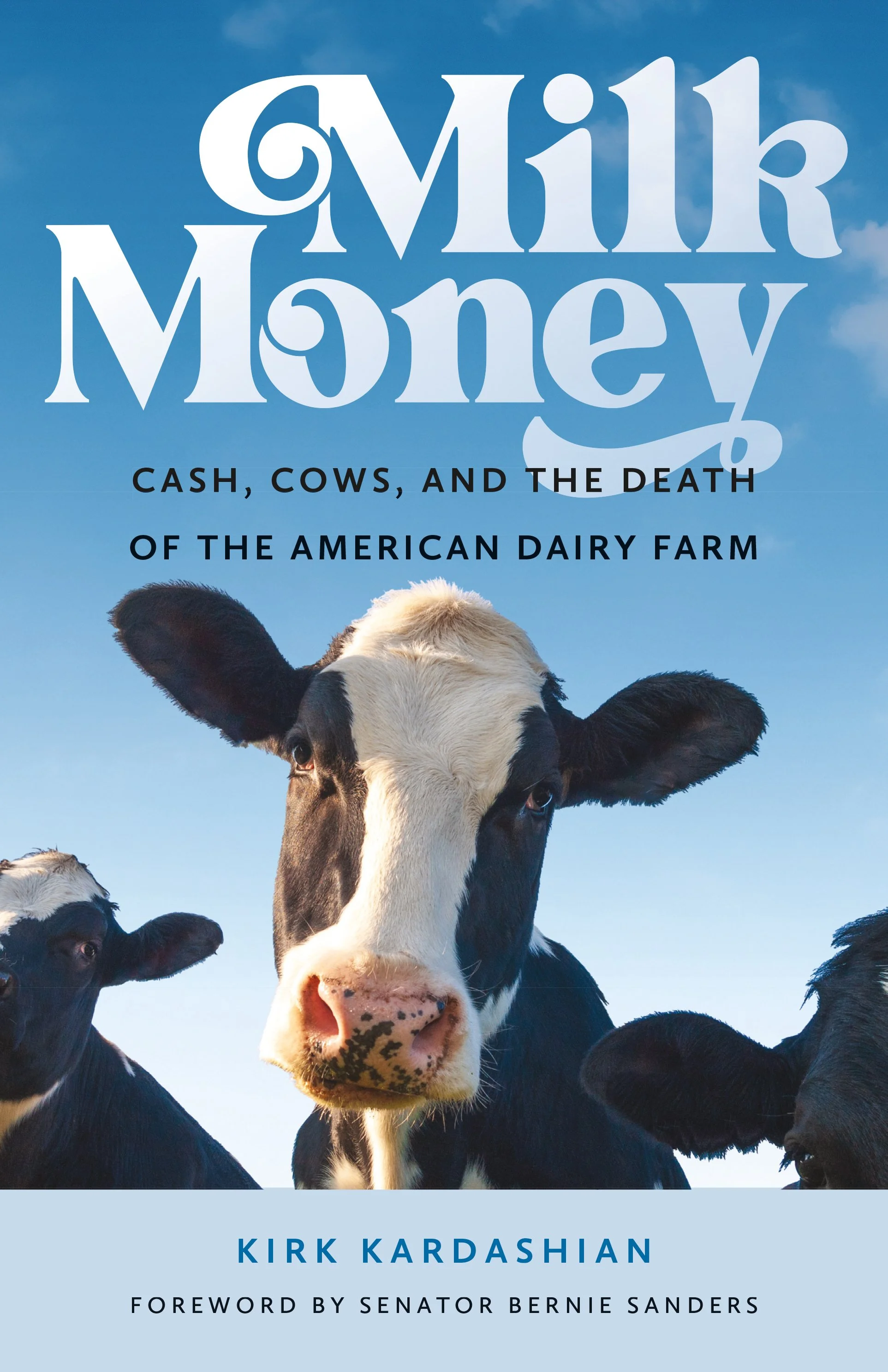The failing economics of the traditional small dairy farm, the rise of the factory mega-farm with its resultant pollution and disease, and the uncertain future of milk.
There’s something un-American and illogical about a market system where the price of a product bears no relation to the cost of its inputs. Yet we have lived with such a scheme in the dairy industry for decades: retail milk prices have stayed the same, while milk prices paid to farmers have plummeted. The dairy business is at the heart of the culture and economy of Vermont, just as it is of many other states. That fact meant little to Kirk Kardashian until he started taking his daughter to daycare at a dairy farm a few miles from his Vermont home—a farm owned by the same family for generations, but whose owners were now struggling to make ends meet. Suddenly, the abstractions of economics and commodities markets were replaced by the flesh and blood of a farm family whom he greeted every day.
In the tradition of Michael Pollan and Eric Schlosser, Kardashian asks whether it is right that family farmers in America should toil so hard, produce a food so wholesome and so popular, and still lose money. This gripping investigation uncovers the hidden forces behind dairy farm consolidation, and explains why milk—a staple commodity subject to both government oversight and industry collusion—has proven so tricky to stabilize. Meanwhile, every year we continue to lose scores of small dairy farms. With passion, wit, and humor, Milk Money shows where we are now, how we got here, and where we might be going.
- From Brandeis University Press
News & Media
An Interview with WAMC's The Roundtable | Listen to the full interview
"Kardashian's Debut Book Tackles Serious Food Issues" by Larry Olmstead | Forbes, Jan. 2013
Milk Money on Good Reads
“Vermont’s rural communities and its working landscape were formed by dairy farms. Its rural communities, and its working landscape, continue to be shaped by dairy farms today.
Farms, unlike businesses that can slow down or increase production, often face a stark choice: when prices drop, and loans are called in, they all too frequently must be sold. And then, suddenly, there is not enough milk, and the price of cheese and milk to consumers rises rapidly. These huge fluctuations help no one but speculators—not consumers, not dairy-based businesses, not tractor salesmen—and they particularly do not help or sustain farmers.
The best policy is to develop a system of supply management, so that dairy farmers never severely overproduce or underproduce, thereby stabilizing prices and ensuring a sufficient amount of high-quality dairy products for our country.”

